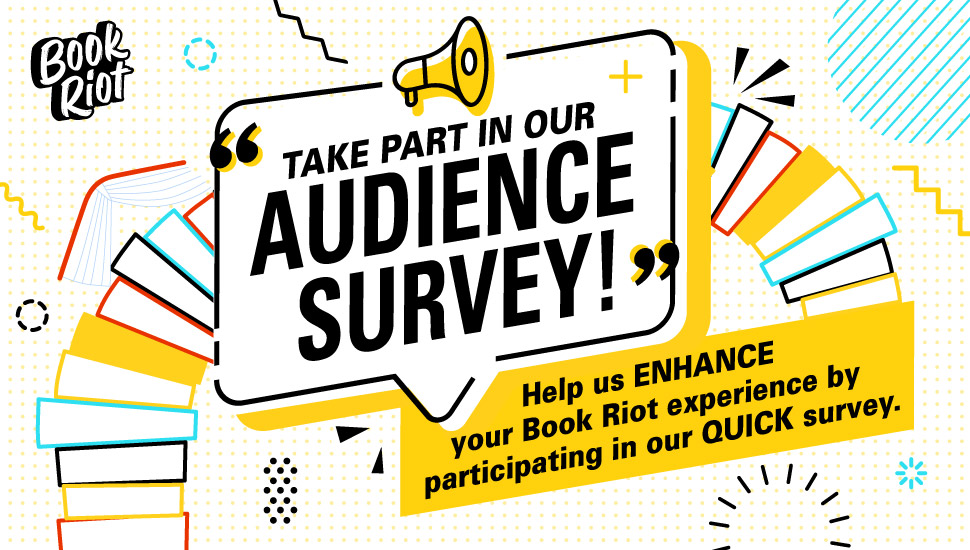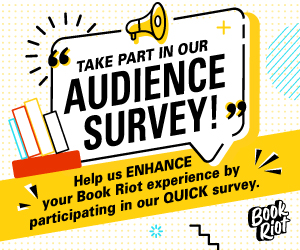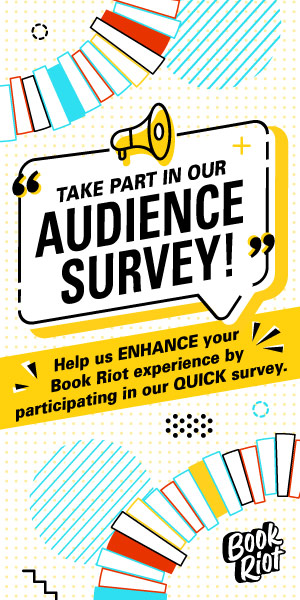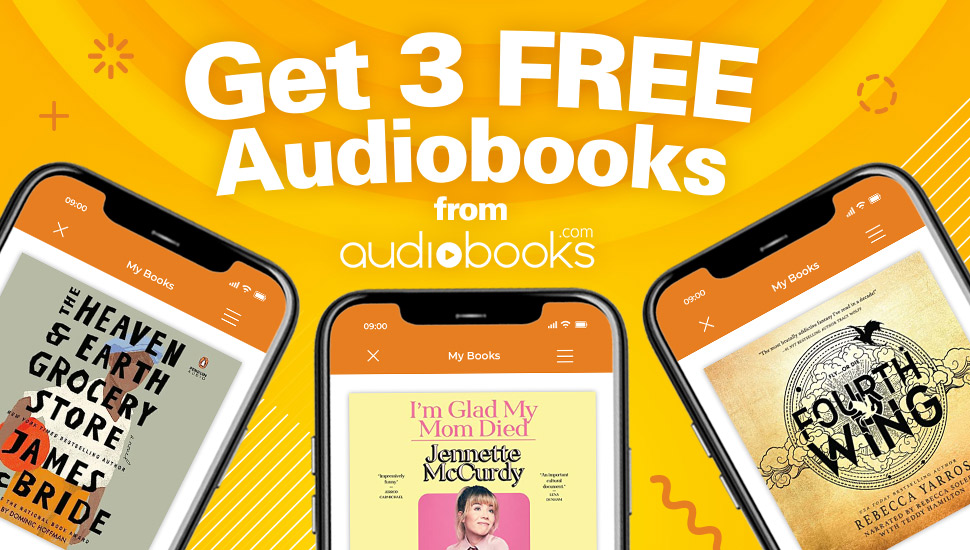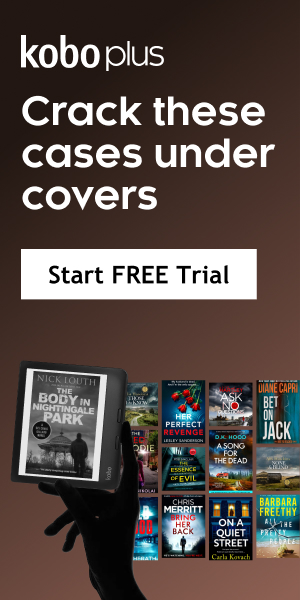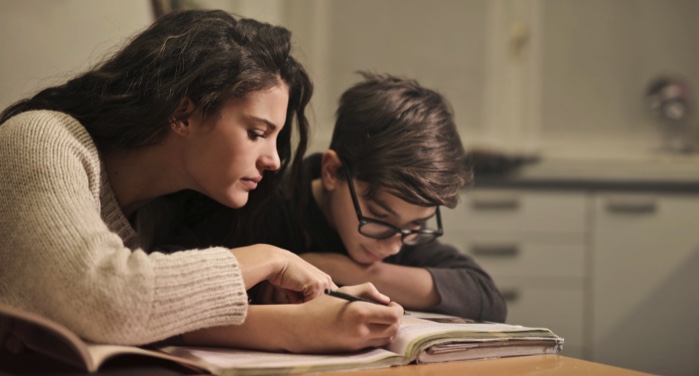
Balancing Homeschooling and Parenting: Books I’m Reading Now
I am homeschooling my son this year because of COVID, but if I’m being honest, I’ve wanted to homeschool for a while—I just didn’t see how it was possible, working full-time. But this year has shown me that it is doable for us, albeit with more than a few late nights and a bit of stress (I also work remotely, which makes it a little easier). But at the same time, it’s a lot less stressful for me than trying to fit my kiddo into a curriculum not suited to him (or the hassle with virtual learning, from what I’m gathering from friends). We have the time to follow his lead with what works, what doesn’t, and how he learns best. I’ve read a lot of books about education and homeschooling in the last 2 years, and as I’ve actually put homeschooling into practice, found myself returning to some books again and again, and looking for others as our homeschooling evolves.
In the short time that I’ve been interested in homeschooling, I’ve seen things begin to expand: I’m seeing more secular homeschoolers and I’m seeing more homeschoolers of color, especially on social media. The demographics of homeschooling are changing (this article is from 2019, and I think COVID has changed and will change things even more) and I think social media and the available resources are starting to reflect that—although it is still an overwhelmingly white and religious landscape.
I’ve found that as time has gone on with homeschooling, my approach has changed. I started off with a more scripted, organized curriculum, but now I lean toward Montessori approaches and philosophies, and incorporate more unit studies and go with the flow. I’ve ditched the boxed curricula and put together what works for us—and I think my reading has reflected more of an ease with things and exploration of theories and approaches. By nature, I am a person who reads everything I can about a topic, so I’ll probably continue to read about homeschooling or education for as long as my child is of school age. But I think as my own journey has evolved, so has my reading about it, although there are the favorites that endure.
I’ve written about the books I was reading about education here and about homeschooling here, and a fellow Rioter has written about open-access textbooks here, if you’re looking for more to read or books for your own homeschooling research or experience. Below are some of the books guiding my homeschool journey right now, almost a year into this experience. Homeschooling and parenting are inextricable, so there are also some parenting books in the list, as well.
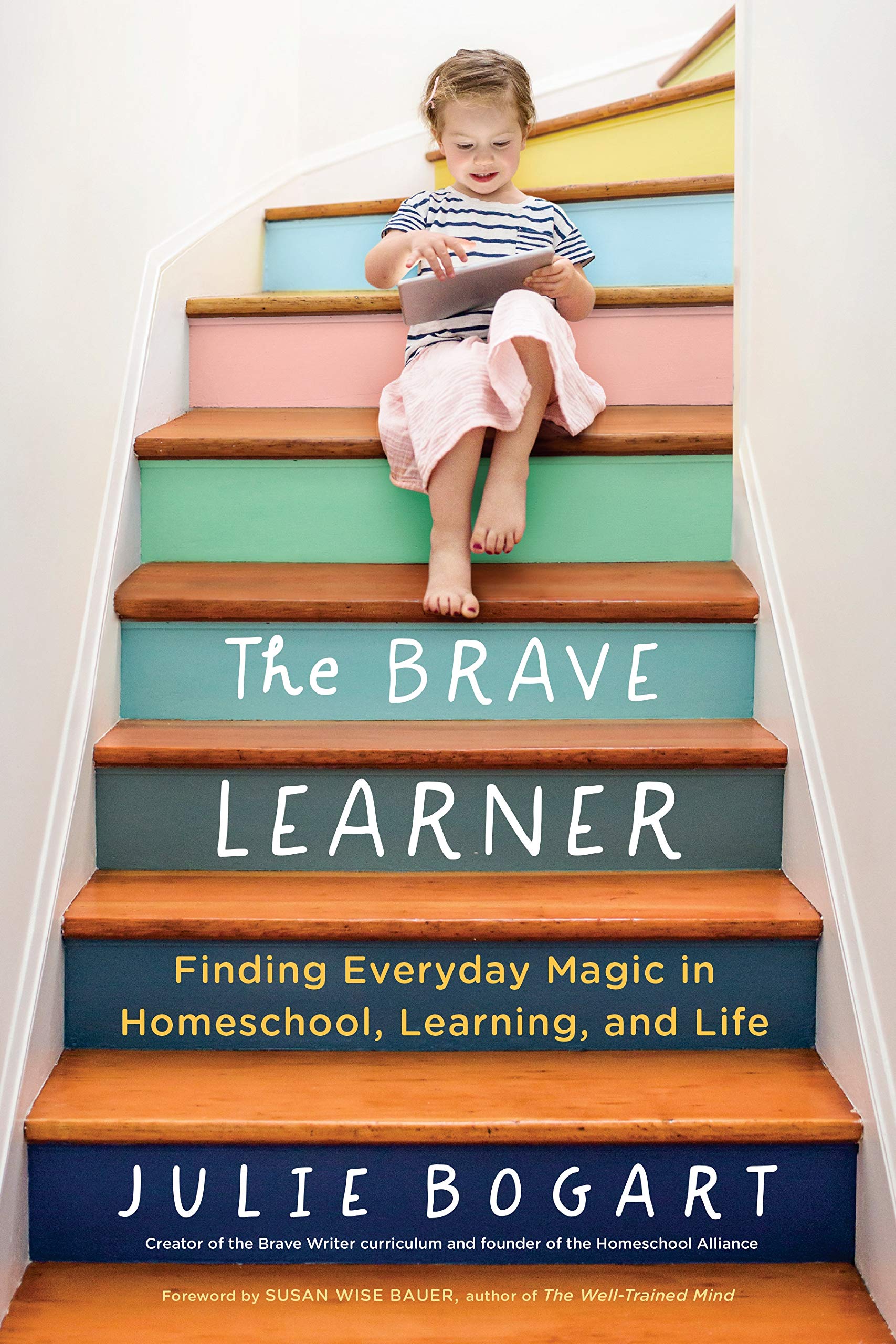
The Brave Learner by Julie Bogart
When I first started exploring homeschooling, this book was the book that people in Facebook groups would tell me to read, without fail. And there’s good reason for it. Bogart’s book is like a conversation with a good friend who’s been there—and she literally has. She provides glimpses into what her homeschooling journey was like (her kids are now grown), along with specific, practical tips and guidelines to help you find your own way through parenting and homeschooling. She’s never preachy, she’s inclusive to all kinds of families and environments (AKA city versus suburbs, small apartments and large houses, etc.—not all homeschool books take these things into consideration, unfortunately), and most importantly, it’s a fun book to read. Whether you’re a COVID homeschooler or long-time homeschooler, interested in homeschooling or just want a new parenting book, you’ll find something of value in this book.
Raising Free People: Unschooling as Liberation and Healing Work by Akilah S. Richards
I first saw this book on a fellow homeschooler’s Instagram account, and though we are not unschoolers, I was instantly drawn to this. Homeschooling solidified some thoughts I had about standardized testing and education processes, and Richards talks about this in the book, along with how homeschooling, and unschooling in particular, can be a community-building, social justice-oriented process while having roots in self-directed education—and lead to healing on a variety of levels. The book looks at decolonizing education and parenting, as well as intergenerational trauma, and how all of this shows up in parenting and schooling. You don’t have to be a homeschooler or unschooler to read this book, and if you want even more information about topics raised in the book, Richards also has a podcast, Fare of the Free Child. You can also check out her TED talk here.
The Homeschool Alternative: Incorporating a Homeschool Mindset for the Benefit of Black Children in America by Dr. Myiesha Taylor and Haley Taylor Schlitz
We know that traditional school systems are filled with inequities and the effects of systemic racism—but homeschooling may not be a valid option for everyone, or may seem unattainable. In this hybrid memoir/how-to book, Dr. Taylor and her daughter not only look at the education system and the inequities inherent in standardized testing, the way history is taught, and how Black children are viewed, but also look at the homeschooling mindset, even if homeschooling itself isn’t an option. They have resource lists, FAQs about getting started, explanations of what homeschool can look like for different people, and much more. You don’t have to be a homeschooler to get the benefits of this book: she also looks at parenting and how the homeschool mindset can also be applied to the larger parenting sphere.
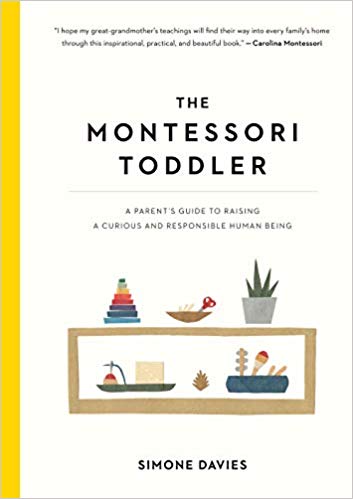
The Montessori Toddler by Simone Davies
I first read this when my son was nearly 3, and although I loved it, wasn’t sure if I could apply it. Nearly two years later, and I am still using this book because it has a lot of great ideas and tips for parenting and a Montessori home. Our homeschool process is heavily influenced by Montessori and uses many of the materials, and this book has a ton of suggestions on how to create a Montessori-inspired environment with things you have—you don’t need to spend a ton of money or get all new things. Simone Davies also has a new book coming out with Junnifa Uzodike in May 2021, The Montessori Baby, which covers the early pre-toddler years.
Hunt, Gather, Parent: What Ancient Cultures Can Teach Us About the Lost Art of Raising Happy, Helpful Little Humans by Michaeleen Doucleff (March 2)
Parenting is hard. Parenting during a pandemic when your child is with you 24/7 is hard. Homeschooling and parenting are hard. It is all hard. You might remember Dr. Doucleff from this article from 2019, which inspired her to explore how other types of communities parent, and this book is a result of her research. She looks at TEAM parenting: Togetherness, Encourage, Autonomy, and Minimal interference. Parenting topics include emotional intelligence, flexibility and cooperation, mental health, and more. A memoir-reportage hybrid, this book is filled with accessible, practical information and anecdotes that can help parents address challenges they may face.
Unpack Your Impact: How Two Primary Teachers Ditched Problematic Lessons and Built a Culture-Centered Curriculum by Naomi O’Brien & Lanesha Tabb
I had been following O’Brien on Instagram (@readlikearockstar) for well over a year when I found out she was coming out with a book with her co-author Tabb (@apron_education). Although this is geared more toward classroom teachers, I still found it very helpful as a homeschooling parent. O’Brien and Tabb look at elementary school curricula: social studies, history, global lessons, holidays, sociology, thematic units, and much more. They provide concrete explanations and suggestions about removing problematic elements and creating diverse, inclusive, respectful curricula, as well as how to foster constructive dialogue in the classroom. While not all of it is applicable to homeschool, this book was thought-provoking and encouraged me to examine educational materials and curricula in a more nuanced way. I wish I could give it to every teacher, as well as any homeschooler wanting to provide inclusive lessons to their child.
Extraordinary Parenting: The Essential Guide to Parenting and Educating at Home by Eloise Rickman
This book was written during the early months of the COVID-19 crisis, when many parents and families found themselves at home with their children 24/7, unsure how to help with school, wondering if they should commit to homeschooling, and overwhelmed with parenting and working. Rickman’s approaches are heavily influenced by Montessori and Waldorf philosophies, as well as gentle parenting theories. The book addresses working from home while parenting and meeting your child’s needs, finding your family’s rhythm, parenting during uncertainty, creating a learning environment at home, and more. She has lots of lists and bullet points, and the information is accessible, with lots of resources both on and offline listed. Even if your child is doing virtual learning/hybrid school and not homeschooling, there are a lot of great tips in this one.
For more on parenting during a pandemic, here’s a list of books to help you through it.
